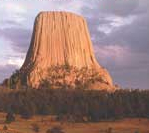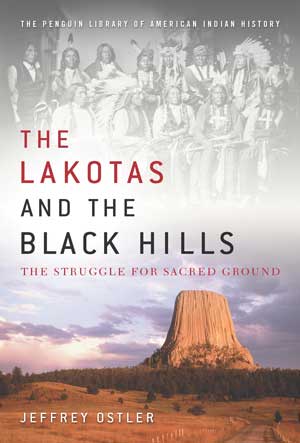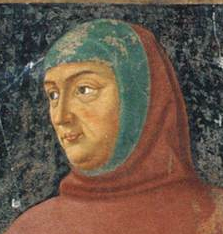 In his new book, The Lakotas and the Black Hills (Viking, 2010), history professor Jeff Ostler explores the heroic and unbroken history of the Lakotas’ fight to retain their land.
In his new book, The Lakotas and the Black Hills (Viking, 2010), history professor Jeff Ostler explores the heroic and unbroken history of the Lakotas’ fight to retain their land.
Within the tribal nation of the Lakotas are to be found some of the best-known American Indian legends, including Black Elk, Sitting Bull (who defeated Custer at Little Big Horn in 1876) and Crazy Horse.
 Significant bloodshed marked the eventual forced sale of their land in 1877. A century later, the Lakotas rejected a 1980 U.S. Supreme Court settlement awarding the tribe $102 million in compensation for land claims lost decades earlier. Though the Supreme Court ruling was a victory of sorts for the Lakotas, it did not return the land to the tribe. The money remains untouched as the Lakotas continue to pursue regaining a portion of the Black Hills.
Significant bloodshed marked the eventual forced sale of their land in 1877. A century later, the Lakotas rejected a 1980 U.S. Supreme Court settlement awarding the tribe $102 million in compensation for land claims lost decades earlier. Though the Supreme Court ruling was a victory of sorts for the Lakotas, it did not return the land to the tribe. The money remains untouched as the Lakotas continue to pursue regaining a portion of the Black Hills.
Ostler calls attention to the significant similarity between the Lakotas’ fight in the 1800s—when they fought against an enemy with notions of land ownership foreign to American Indian tribes—and their current fight to return to their land, which also involves rallying against a government-imposed system of laws and politics equally alien to their culture. Then and now, their persistent courage and determination in the face of both violent and overwhelming odds is the remarkable testament of a people who refuse to back down.
This is Ostler’s second book related to Native American history. His first, The Plains Sioux and U.S. Colonialism from Lewis and Clark to Wounded Knee, won the Caughey Western History Association prize for the best book of 2004 in western U.S. history.
— Patricia Hickson




 A new course will provide UO students with mobile smart phones and a mission: to build smart-phone apps.
A new course will provide UO students with mobile smart phones and a mission: to build smart-phone apps.
 Two CAS faculty members have been honored with the 2011 UO MLK Award.
Two CAS faculty members have been honored with the 2011 UO MLK Award. Petrarch is not only going digital at the UO, but musical as well.
Petrarch is not only going digital at the UO, but musical as well.